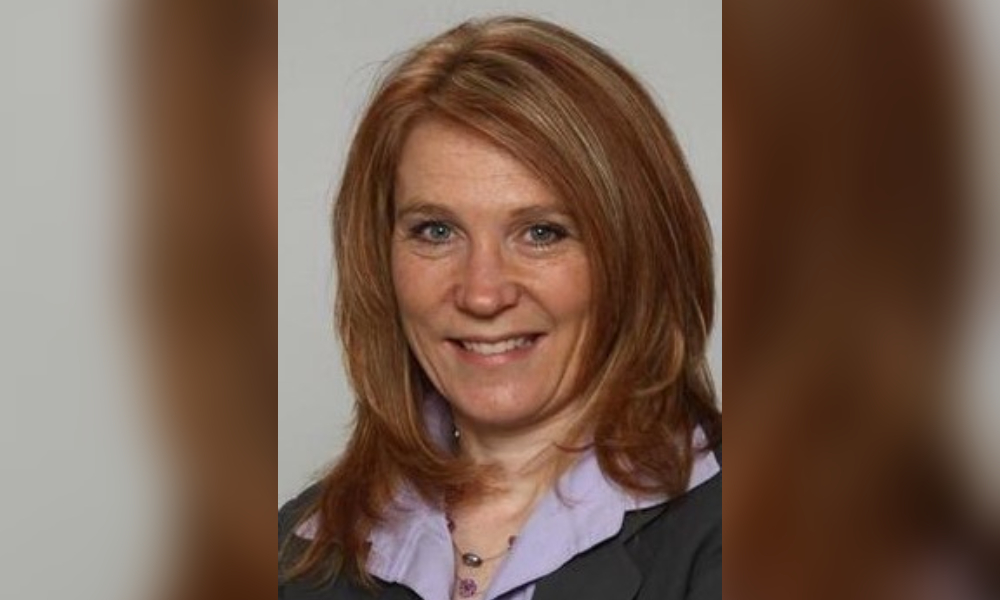
Nadine Letson discusses Microsoft’s involvement in Digital Technology Supercluster

Among her many achievements at Microsoft Canada, assistant general counsel, Nadine Letson, is particularly proud of her involvement in the Digital Technology Supercluster which launched in 2018. Microsoft is one of the founding members of the government-funded British Columbia-based consortium which brings together technology leaders and research groups with a goal to position Canada as a global leader in digital technologies, and to spark economic development.
One of the consortium’s projects, in which Microsoft participated, involved the development of a platform for harnessing all the water-monitoring data from an entire river basin to better understand the health of the surrounding ecosystem. Data is collected on Microsoft Azure, a cloud computing platform. Letson also worked on another recent project with the supercluster which involved the development of a beacon to enable scientific and medical communities to share and discover knowledge about the genetics of the COVID-19 virus in real time. The beacon was created by supercluster member, Toronto startup, DNAstack.
“It’s really exciting to see these projects take off and become successful,” says Letson. “What it does is allow for information to be collected from all different sources and made available to researchers in real time, so we are saving time and accelerating research because of our cloud solutions. It’s one of the things that makes my job really interesting.”
Letson joined Microsoft Canada as corporate counsel 18 years ago and now leads the entire commercial and legal affairs team for the sales and marketing subsidiary which has offices in Vancouver, Ottawa and Toronto. As well as ensuring that Microsoft’s Canadian sales and marketing teams have the legal support they need to negotiate agreements with customers and technology partners, she also manages regulatory and policy initiatives that are important to the Canadian business and to the company on a global scale.
As an integral part of the business, the legal department at Microsoft sets goals that are tightly aligned with the goals of the business.
“Another important role that we play is our ability to synthesize a lot of information from multiple sources and then to add judgement and insights to that analysis, so whether the challenge we’re looking at is a pure legal one or a business one, or a combination of both, I think that level of judgement is a really valuable perspective that we bring to our business partners,” says Letson.
Members of the legal department are accustomed to communicating through Microsoft Teams, so they were able to transition seamlessly to a remote work environment when the pandemic struck in March.
“We used to have a mix of in-person and Teams meetings but since March, we’ve switched to having all our meetings through our Teams collaboration tool to communicate with one another – not just through video calls, but also using the messenger service, and for sharing and collaborating on documents,” says Letson.
When the pandemic struck, Letson and her team began carefully tracking the various provincial and federal emergency measures that were being released regularly in order to provide advice on the potential impact of these measures on employees, customers and on the Microsoft business. Letson was also integral is helping the business to make decisions about closures and moving in-person events to online.
The team spent considerable time fielding questions from customers and technology partners, particularly given the increased demand for Microsoft’s services when many businesses were forced to move rapidly to a remote working environment.
Letson plans to continue focusing on her team and being a strong people manager as the pandemic turmoil persists and creates further uncertainty about the potential of another lockdown during the fall.
“I think it’s just really important to stay in contact with the people on your team and make sure they are getting breaks when they need them and they are coming forward if they have care issues with children or elderly parents,” says Letson. “It’s about making sure that people are aware of the resources they need to take care of themselves so we can all continue to do the work that we need to do. This is a people-first year for me.”